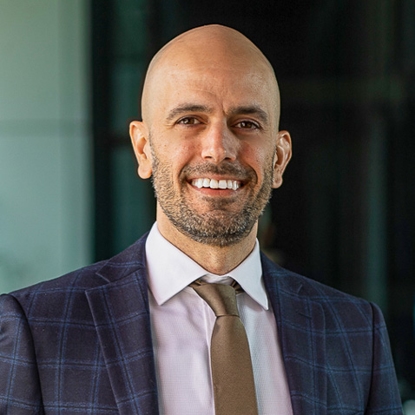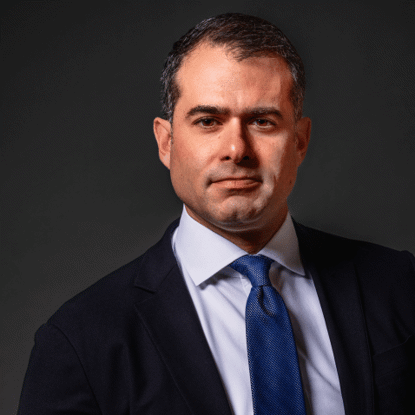
Plano Personal Injury Lawyers
Were You Seriously Injured? Let Us Fight for You!
At MR.LAW Accident & Injury Attorneys, our Plano personal injury attorneys are always standing by to hear from people who were seriously injured in an accident. We know that you have more than enough to deal with after being hurt by someone else’s negligence. That’s why we offer legal counsel that is professional, compassionate, responsive, and more than capable of handling all parts of your injury claim or lawsuit. While you focus on taking care of yourself, we can focus on progressing your case and chasing down every penny of compensation owed to you, so you can feel confident in your recovery.
Talk to our Plano, TX personal injury lawyers now if you were seriously injured in an accident. For a free consultation, dial (469) 689-0200 at any time.
Let Us Handle Your Personal Injury Claim
For more than 20 years, we have been fighting for injured clients throughout our communities. Our efforts have secured tens of millions of dollars for them through successful settlements and awards. If you or a loved one have been seriously injured in an accident, trust in our experience and caliber of legal service to handle your personal injury claim, too.
We can work on all sorts of personal injury cases but focus on:
- Car accidents: Were you hit by a drunk, distracted, or speeding driver? Let us deal with their auto insurance company on your behalf and explore all your options for pursuing the damages you need to recover.
- Truck accidents: Trucking companies fight truck accident claims tenaciously, even when it is clear that the truck driver is to blame. We are ready to fight right back by using our decades of collective practice and trial experience on your behalf.
- Construction accidents: Many construction workers in Texas are not covered by workers’ compensation, so after a construction accident, they have to use the civil court system to pursue damages. Talk to us today if you’ve found yourself in such a difficult situation.
- Wrongful deaths: Have you lost a loved one to an accident that a third party caused? Find genuinely compassionate legal counsel by talking to our wrongful death attorneys today. We can fight for their memory!
Hospitals in Plano, TX
Hospitals in Plano, TX that frequently treat people who have been in an accident include:
- Medical City Plano:
- Address: 3901 W 15th St, Plano, TX 75075
- Hours: Open 24 hours
- Phone: 972-596-6800
- Baylor Scott & White Medical Center – Plano:
- Address: 4700 Alliance Blvd, Plano, TX 75093
- Hours: Open 24 hours
- Phone: 469-814-2000
- LifeCare Hospital of Plano:
- Address: 6800 Preston Rd, Plano, TX 75024
- Hours: Open 24 hours
- Phone: 214-473-8822
- Texas Health Presbyterian Hospital Plano:
- Address: 6200 W Parker Rd, Plano, TX 75093
- Phone: 972-981-8000
If you have been in an accident but have not received medical treatment yet, please seek medical care as soon as possible, even if you feel fine. You could have underlying injuries that a medical expert can diagnose and treat. (Not all the facilities listed above have the same equipment, staff, and facilities, so you should call ahead to verify that you can get the treatment you need at the hospital/clinic of your choice. Call 911 if someone has been seriously injured.)
Damages in a Personal Injury Claim
If your personal injury claim is successful, you may feel a great sense of justice and closure, which cannot be overvalued. However, what might feel more important to you upfront is getting the financial compensation you need to recover from your losses. We know that you might be struggling as costs add up and work becomes difficult to continue due to your injuries, so we will dedicate ourselves to pursuing 100% of the compensation that you need and deserve after an accident.
In your case, we may be able to demand compensation through:
- Economic damages: Tangible financial losses related to the accident, usually including past and future medical expenses, lost wages, and reduced future income earning capacity.
- Non-economic damages: Intangible yet important losses caused by the accident, usually including pain, suffering, and lessened enjoyment of life.
- Punitive: Damages used to punish the liable party rather than compensate the plaintiff for a loss; punitive damages are not always available in every case because they are used when the liable party acted with egregious negligence or wrongdoing.
Texas Two-Year Statute of Limitations for Personal Injury
Texas uses a two-year statute of limitations on most personal injury claims. Starting on the date of your accident, you will likely have just two years to file a claim in civil court. If you do not start a claim before the statute of limitations expires, it is nearly guaranteed that you won’t be able to file one after.
In some cases, the statute of limitations will be even shorter than two years, too. To find out for certain how much time you still have to file an injury claim after an accident, talk to our legal team as soon as possible. Don’t wait too long and risk missing your chance to file a claim.
Begin Your Case with a No-Cost Consultation
MR.LAW Accident & Injury Attorneys offers free initial consultations for Plano locals who need a personal injury attorney’s help. We always prepare each case we take for trial, just in case a fair settlement isn’t offered by the opposition, so we’re ready for anything. Put our tenacious and thorough award-winning attorneys on your side today!
Call (469) 689-0200 if you want to talk to a Plano personal injury lawyer about your potential case.
practice areas
-
Bicycle Accidents
-
Birth Injuries
-
Car Accidents
-
Catastrophic Injuries
-
Construction Accidents
-
Dangerous Drugs
-
Medical Malpractice
-
Motorcycle Accidents
-
Pedestrian Accidents
-
Police Brutality
-
Premises Liability
-
Product Liability
-
Third-Party Crimes
-
Tractor Overturn Accidents
-
Trucking Accidents
-
Workplace Accidents
-
Wrongful Death


-
"Attorney Raphael & Attorney Mathias are both very forthcoming & handle each case with care!"I have worked with this office on many different life care plans for personal injury cases and each time it’s been wonderful. Attorney Raphael and Attorney Mathias are both very forthcoming and handle each case with care. I would definitely recommend them!- Brandy C.
-
"Damon took my case when others would not consider it."
Damon is the one attorney who took my case when others would not consider it. He is good at explaining the next steps and possible outcomes. Professionalism shows through in all he does. I recommend him for your legal matter.
- Carolyn -
"Mr. Mathias went above and beyond for me!"
Mr. Mathias went above and beyond when I got in an automobile accident making the situation stress free. He allowed me to concentrate on getting a new vehicle and getting the appropriate treatment instead of worrying about medical bills and settlements.
- James -
"Truly amazing attorney!"
Truly amazing Attorney! This guy went above and beyond my expectations, from a broken wired up jaw. To a well deserved settlement. Thanks again!
- S. Plowden -
"Better outcome than imagined."
MR.LAW Accident & Injury Attorneys handled our case well and gave us a better outcome than we could have ever imagined. Thanks to Damon, Ori and their entire team!
- Eric B. -
"Attorney Ori Raphael fights for you!"Ori gives it his all to fight for you!- Amir A
-
"Hire these guys!"These guys are great! Ori really went above and beyond and every time I needed good advice or help, he was there for me.- R.J.
-
"Mr. Raphael was very helpful and responsive to our needs!"Mr. Raphael was very helpful and responsive to our needs. He provided excellent service with polite,gentle and sensitive care,from the time he greeted us all through the process. I felt very confident trusting him with our case and he came through for us and got us more than we imagined.- Avi P.

